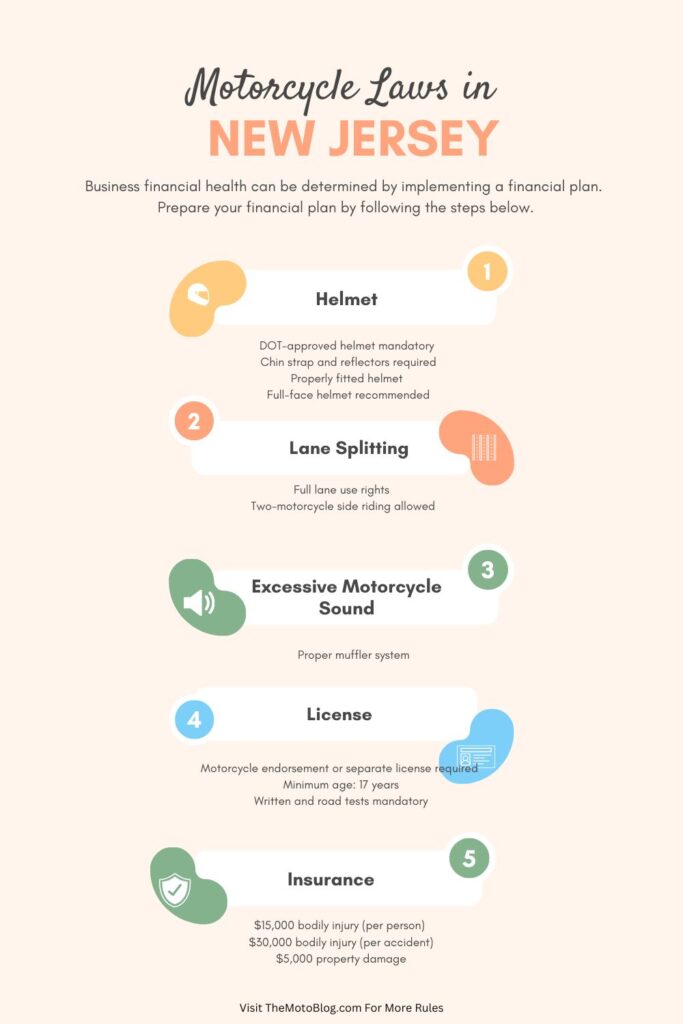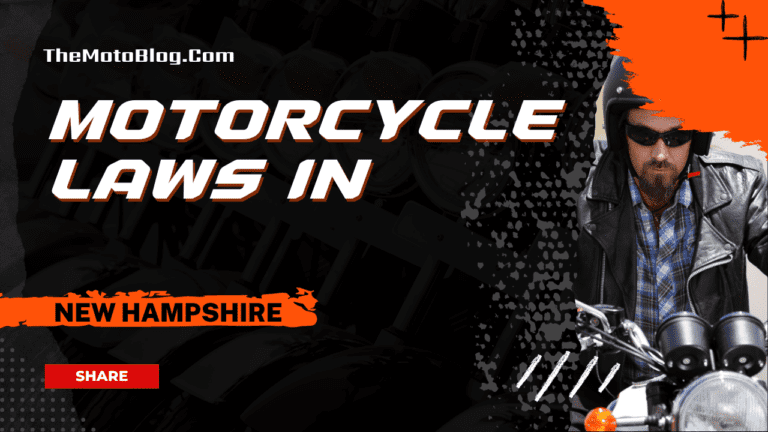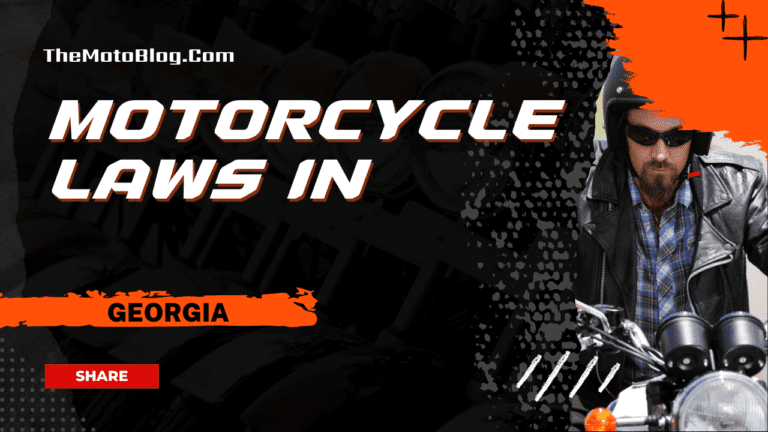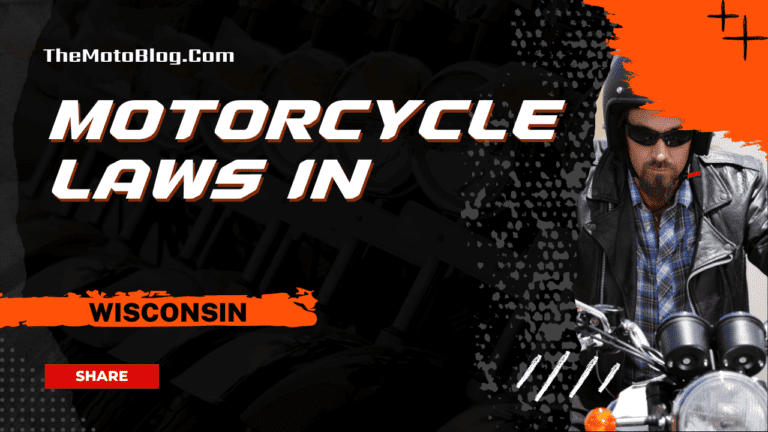Motorcycle Laws in New Jersey: A Comprehensive Guide for Riders
While New York and Pennsylvania motorcyclists navigate their own sets of regulations, New Jersey maintains distinct motorcycle laws that balance rider freedom with public safety. Situated between these major riding destinations, New Jersey’s motorcycle laws reflect the state’s commitment to road safety while accommodating the growing motorcycle community. Riders traveling through Delaware and into New Jersey will find some similarities in regulations, though important differences exist that every rider should understand.

| Requirement Category | Specific Rules |
|---|---|
| Licensing Requirements | • Motorcycle endorsement or separate license required • Minimum age: 17 years • Written and road tests mandatory • 20-day permit waiting period • Parental consent for under 18 • 500cc restriction if tested on ≤231cc bike |
| Safety Equipment | • DOT-approved helmet mandatory • Chin strap and reflectors required • Eye protection needed (unless windscreen present) • Properly fitted helmet • Full-face helmet recommended |
| Operating Requirements | • Shoulder-height handlebar limit • One rearview mirror minimum • Optional turn signals • Dual wheel brakes required • Lane splitting discouraged • Mandatory footrests |
| Insurance Coverage | • $15,000 bodily injury (per person) • $30,000 bodily injury (per accident) • $5,000 property damage |
| Vehicle Standards | • NHTSA compliance required • 200-foot audible horn • Proper muffler system • Speed limits for low-cc bikes |
| Passenger Rules | • Permanent passenger seat required • DOT-approved helmet mandatory • Proper footrest position • Required passenger footrests |
| Documentation | • Title and registration required • $65 registration fee • No inspection needed • Insurance proof required • 6-point ID verification |
| Traffic Regulations | • Full lane use rights • Two-motorcycle side riding allowed • Limited highway access for low-speed bikes |
| Penalties | • Up to $500 fine for no endorsement • $50-$100 passenger violation fines • No points for helmet violations |
| Special Rules | • 600cc dirt bike limit • Restricted ATV areas • Sidecar seatbelt requirements |
Licensing Requirements
To legally operate a motorcycle in New Jersey, riders must obtain proper licensing through a structured process. New Jersey’s licensing system aims to ensure all riders have adequate training and knowledge before hitting the road.
The state requires either a motorcycle endorsement on an existing driver’s license or a separate motorcycle license. Prospective riders must be at least 17 years old and pass both written and road tests. For those under 18, parental consent is mandatory.
A key requirement is obtaining a motorcycle permit and completing a 20-day waiting period before taking the road test. An important restriction applies to those who take their road test on smaller bikes: if tested on a motorcycle 231cc or less, riders are restricted to operating motorcycles of 500cc or less.
Helmet and Safety Equipment Laws
New Jersey maintains strict helmet laws for all motorcycle operators and passengers. The requirements include:
- DOT-approved helmets mandatory for all riders
- Helmets must include chin/neck straps and reflectors
- Eye protection required unless the motorcycle has a windscreen
- Proper helmet fit and sizing
- Full-face helmets recommended for optimal protection
Operating Rules and Regulations
The state enforces specific equipment and operation requirements:
- Handlebar height limited to rider’s shoulder level when seated
- Minimum one rearview mirror requirement
- Turn signals optional but recommended
- Functional brakes required on both wheels
- Lane splitting status unclear but may result in citations
- Mandatory footrests for both operator and passenger
Insurance Requirements
All motorcyclists must maintain minimum liability coverage:
- $15,000 bodily injury per person
- $30,000 bodily injury per accident
- $5,000 property damage coverage
Vehicle Specifications
Motorcycles must meet specific requirements:
- Compliance with National Highway Traffic Safety Administration standards
- Horn audible from 200 feet
- Proper muffler system
- Speed restrictions for low-cc motorcycles
Passenger and Equipment Regulations
Passenger safety requirements include:
- Permanent passenger seating
- DOT-approved helmet requirement
- Proper footrest positioning
- Mandatory passenger footrests
Registration and Documentation
Documentation requirements include:
- Title and registration
- $65 registration fee
- No inspection requirement since 2010
- Proof of insurance and ID verification
Traffic Laws and Special Circumstances
Additional regulations cover:
Specific rules for dirt bikes and ATVs
- Highway access restrictions for low-speed motorcycles
- Full lane occupation rights
- Side-by-side riding permissions
Understanding and following New Jersey’s motorcycle laws is crucial for both safety and legal compliance. While these regulations might seem extensive, they’re designed to protect riders and ensure everyone shares the road safely. For those planning extended rides, it’s worth noting that neighboring states like Connecticut and Pennsylvania offer unique riding experiences with their own sets of rules. Whether you’re a resident or just passing through, staying informed about these regulations helps maintain New Jersey’s reputation as a motorcycle-friendly state. Remember that these laws aren’t just legal requirements – they’re proven safety measures that help ensure every ride ends as safely as it began.
Motorcycle Laws in the US By States
If you liked this article, then please subscribe to our YouTube Channel for more Bike Videos. You can also find us on Instagram, Twitter and Facebook.
Disclosure: As an Amazon Associate, I earn from qualifying purchases. Read more about Amazon Affiliate Disclaimer.

Vishwanath Mathpati
I am Vishwanath Mathpati, a full-time Blogger and Motorcyclist from Bidar, Karnataka. I love writing about my Motorcycles Stories and Riding Gears on this blog.
Know More About Me.







